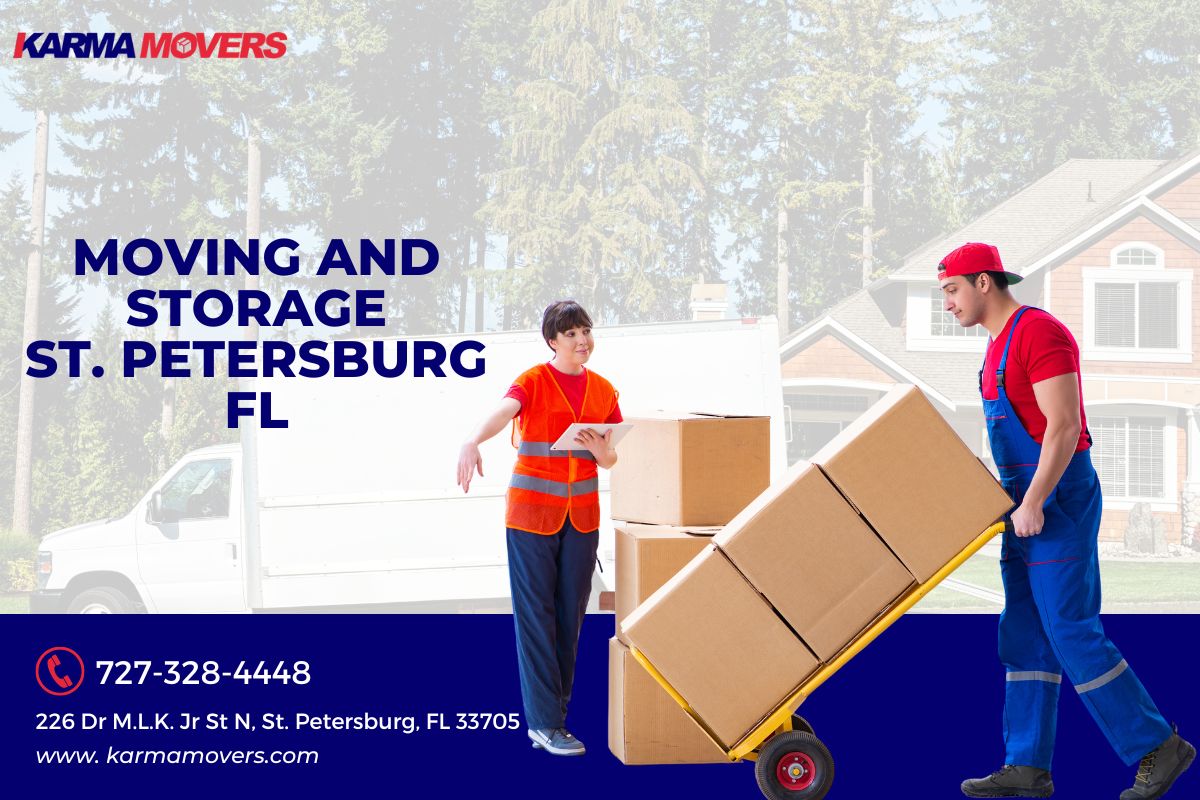
Introduction
Moving can be a stressful and overwhelming experience, especially when it involves a long-distance move. One of the biggest challenges during this process is deciding what to do with unwanted items. Whether it's old furniture, clothes that no longer fit, or appliances that have seen better days, figuring out how to handle these items can feel daunting. In this article, we will explore various options for dealing with unwanted items during st petersburg local moving companies a long-distance move and provide practical solutions to make the process smoother.
What to Do with Unwanted Items during a Long-Distance Move
During a long-distance move, it's essential to declutter and streamline your belongings. Carrying unnecessary items across long distances can increase costs and make the moving process more cumbersome. Here are some effective ways to deal with unwanted items:
1. Sell them online
The internet has made it easier than ever to sell unwanted items. Utilize online platforms such as eBay, Facebook Marketplace, or Craigslist to list your items for sale. Take clear photos, write detailed descriptions, and set reasonable prices. This not only helps you get rid of unwanted items but also earns you some extra cash that can offset moving expenses.
2. Donate to charity
If you want to give back while decluttering, consider donating your unwanted items to charity. Many organizations accept gently used furniture, clothing, and household goods. Not only does this help those in need, but it also ensures your unwanted items find new homes instead of ending up in landfills.
3. Host a garage sale
Garage sales are a classic way to declutter before a move. Set aside a weekend to sort through your belongings and organize them into categories for easy browsing. Advertise your garage sale through local classifieds or community bulletin boards to attract potential buyers. Make sure to price your items reasonably and be prepared to negotiate.
4. Rent a storage unit
If you're unsure about parting with certain items but don't want to take them on your long-distance move, renting a storage unit can be a viable option. Storage units provide temporary homes for your belongings until you decide what to do with them. However, it's essential to evaluate the cost of storage against the value of the items you're storing to ensure it's a worthwhile investment.
5. Recycle or dispose responsibly
For items that are no longer functional or beyond repair, recycling or responsible disposal is the best course of action. Look for local recycling centers or waste management facilities that accept specific items such as electronics, mattresses, or hazardous materials. Properly disposing of these items not only helps the environment but also ensures compliance with local regulations.
6. Give away to friends and family
Consider offering unwanted items to friends and family members who might find them useful. This not only saves you from the hassle of selling or donating but also strengthens personal relationships by sharing something valuable. You can organize a "free-for-all" gathering where loved ones can browse and select items they need.
FAQs about Unwanted Items during a Long-Distance Move
Q: What if I don't have time to sell or donate my unwanted items before the move? A: In such cases, consider hiring professional movers who offer packing and decluttering services. They can help you sort through your belongings and handle the process efficiently.
Q: Can I include unwanted items in my moving insurance coverage? A: Most moving insurance policies cover only valuable or high-priced items. Check with your moving company about their coverage policies for unwanted items.
Q: How can I determine if an item is worth selling or should be donated? A: Consider factors such as the item's condition, market demand, and sentimental value. If it's in good condition and has resale potential, selling might be a better option. Otherwise, donating is a more meaningful choice.
Q: Are there any tax benefits to donating unwanted items? A: Yes, donations made to eligible charitable organizations may qualify for tax deductions. Be sure to obtain proper receipts and consult with a tax professional for guidance.
Q: Can I recycle or dispose of unwanted items during the move? A: It's best to handle recycling or disposal before the move to avoid unnecessary transportation costs. Research local recycling and waste management facilities near your current location.
Q: How can I ensure the safety of my unwanted items if I choose to rent a storage unit? A: Look for storage facilities that offer security measures such as surveillance cameras, access control systems, and climate-controlled units. Additionally, consider purchasing insurance coverage for stored items.
Conclusion
Moving can be a challenging process, especially when it comes to local moving services dealing with unwanted items. By following the tips mentioned above, you can declutter effectively and make your long-distance move more manageable. Whether you decide to sell, donate, store, or dispose of your unwanted items responsibly, taking proactive steps will help streamline the moving process and reduce stress. Remember that what may seem like an inconvenience now can turn into an opportunity for someone else or contribute positively to the environment.